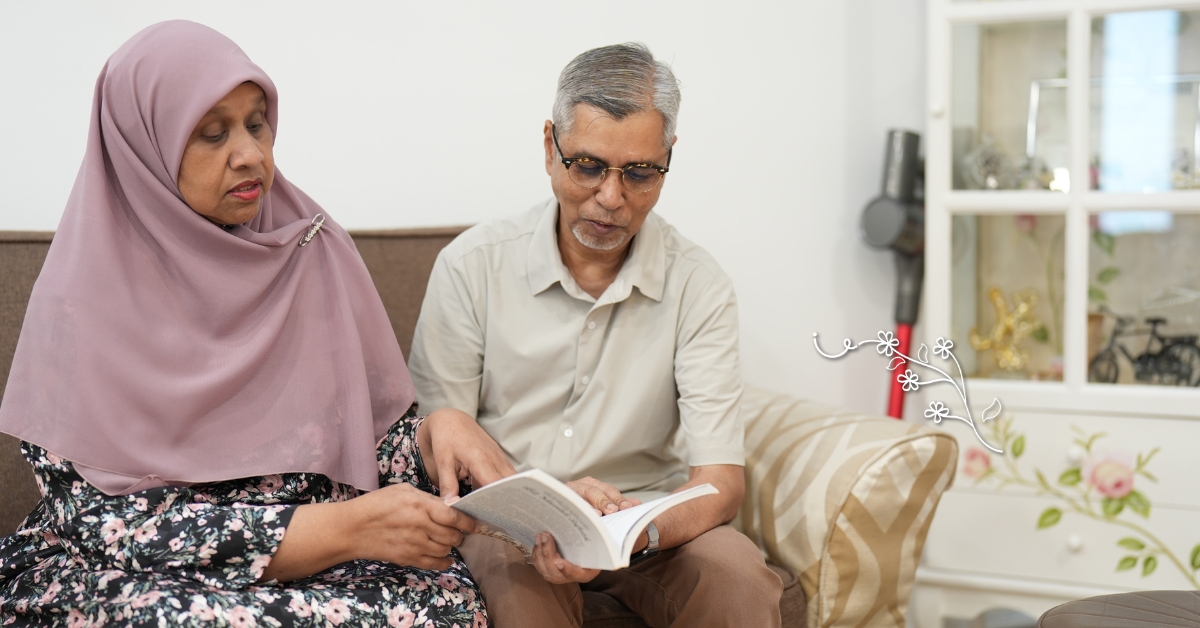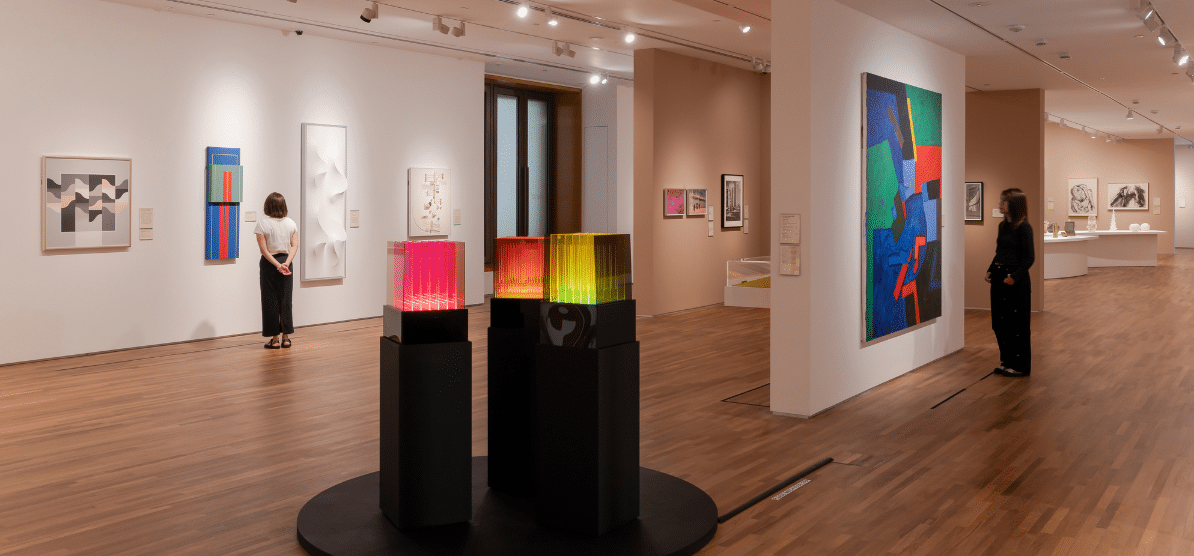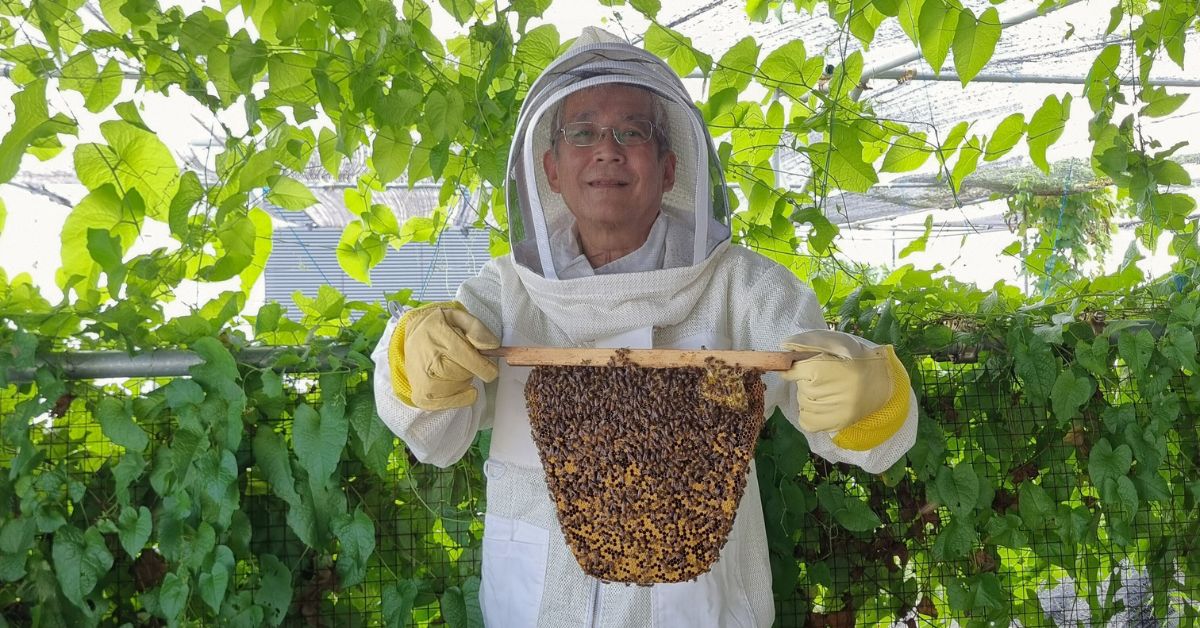
At first blush, the rooftop of Block C in the Singapore University of Social Sciences (SUSS) is quiet, deserted and serene – a far cry from the hubbub of the levels below, which are abuzz with activity at all hours of the day.
But look – and listen – closer, and you might just notice seven boxes hidden in the shade of an ivy-laden trellis, gently buzzing (literally, this time) from the flapping wings of more than 100,000 Asian honeybees.
This is the Bee Amazed Garden, a refuge for rescued bees that doubles up as an educational hive and experience centre for founder and retired teacher John Chong.
The affable silver remains a busy bee at 65 years of age, flitting around Singapore to manage his growing network of apiaries, sell honey and run bee-centric motivational workshops with just a handful of helping hands. But the effort is worth it, he says, if it’ll help people to appreciate the contributions of the humble bee.
“What’s my ultimate goal? If I’m aiming for the very top, it would be lovely if every home in Singapore can keep their own bees,” he says.
Advertisement
Beelined towards beekeeping
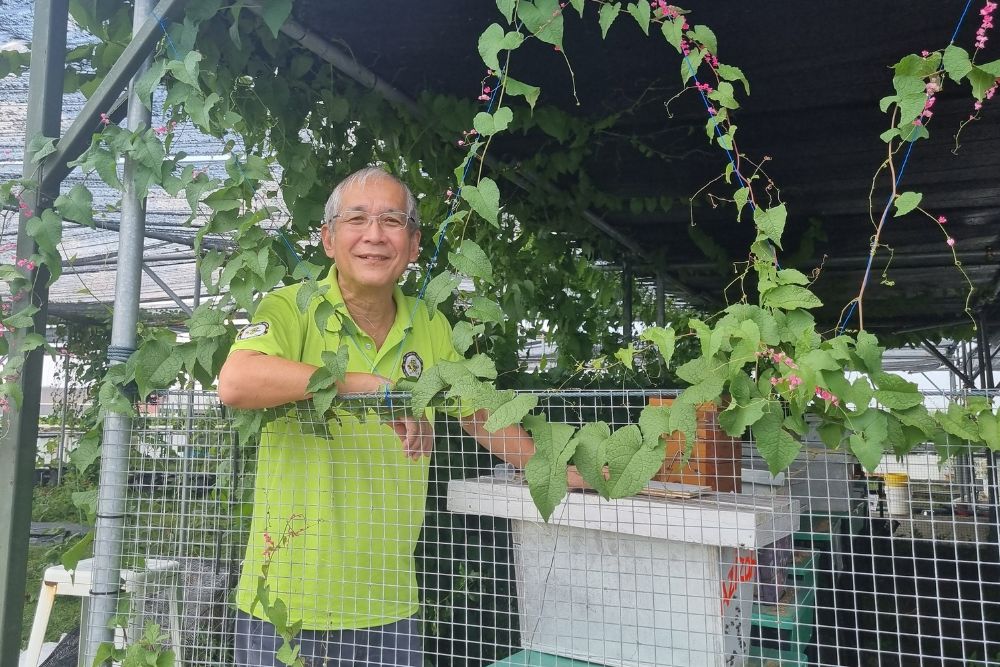
Education has always been in John’s blood – even before it was tinged with honey. His teaching career kicked off in 1979, and stayed with him for the next 37 years as he progressed to head of department, then vice principal.
In 2015, a year before he finally retired from teaching, a chance encounter with stingless bees at a farm in Kedah opened him up to new possibilities outside of education.
After I came back from Malaysia, I kept thinking about the bees. My whole brain was filled with bees,
he says with a wry smile.
"The root of my idea was that poorer farmers could place bees on their farms, both to act as pollinators and to produce some honey to supplement their incomes."
That idea led him to Australia a year later, where he visited around ten apiaries – ranging from larger, commercial farms to bijou backyard operations – in just a week.
Ironically, getting stung – twice – while performing a bee rescue with one of these apiarists convinced John that he was heading in the right direction.
“I was so worried that I would die, because it was the first time in my life that I’d been stung. I thought, ‘What if I have a serious allergic reaction?'” he says with a laugh. “But after a while. I was fine. I congratulated myself and told myself that I can be a beekeeper.”
To me, it was a sign. Now that you can handle bees, anywhere in the world is open to you – so long as there are plenty of flowers,
he adds.
Not stung by failure
John’s next course of action – quit his job, engage a bee farming consultant, and set up shop with 20 hives in a small farm in Myanmar. His hope was to generate enough honey to sustain the farm, before using profits to “sponsor other beekeepers and uplift the community”.
Unfortunately, the entrepreneur’s plan failed to pan out. John cites the complexity of managing a business overseas and the country’s political climate as reasons for the business failure.
Though stung by the loss, the beekeeper decided to try again in Singapore, using an alternative approach that banked on his education experience. In late 2017, Bee Amazed Garden was born – then, in a farm at Lorong Chencharu, and later, SUSS, where it’s remained till today.
The location switch, though unplanned (his previous Yishun dig was slated for redevelopment), is symbolic of the apiarist’s hopes for bee education in Singapore.
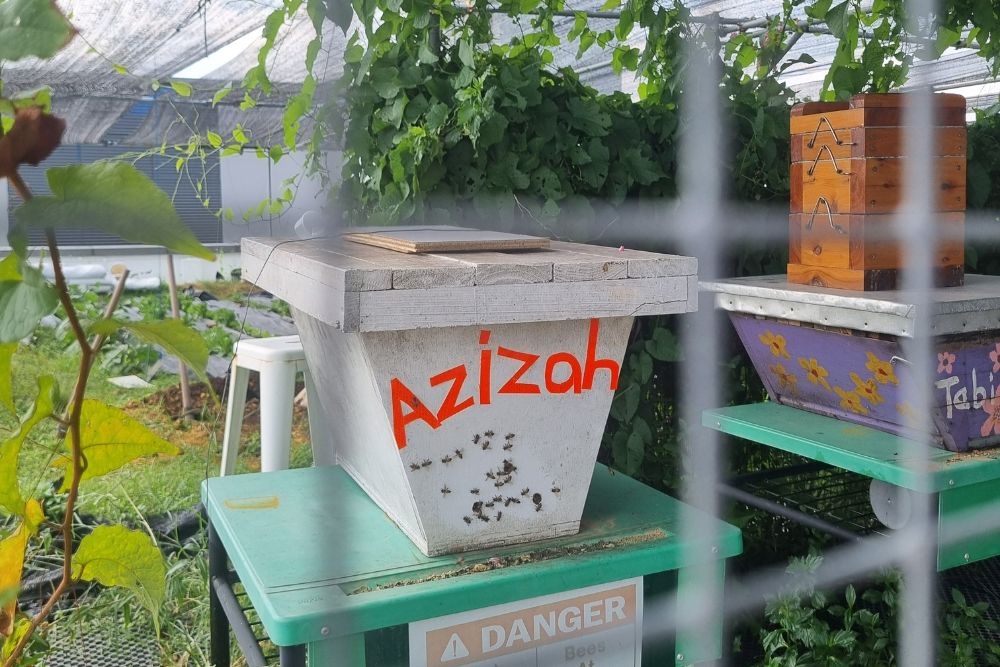
“In Singapore, we like to refer to ourselves as a garden city, or a city in nature, where we are integrated with the environment. But why is it that when we spot beehives, our first instinct is to call for exterminators?” he says.
"Bees are pollinators just like butterflies. They can pose a danger to you, but only if you disturb the hive. So don't call pest control – call me."
That’s why the usual programme at the Bee Amazed Garden – regardless of whether its visitors are families, schoolchildren, or corporate types – always involves physical interaction with the bees.
“Once you’ve handled them, then you can start to understand them,” John adds.
Bee Amazed Garden
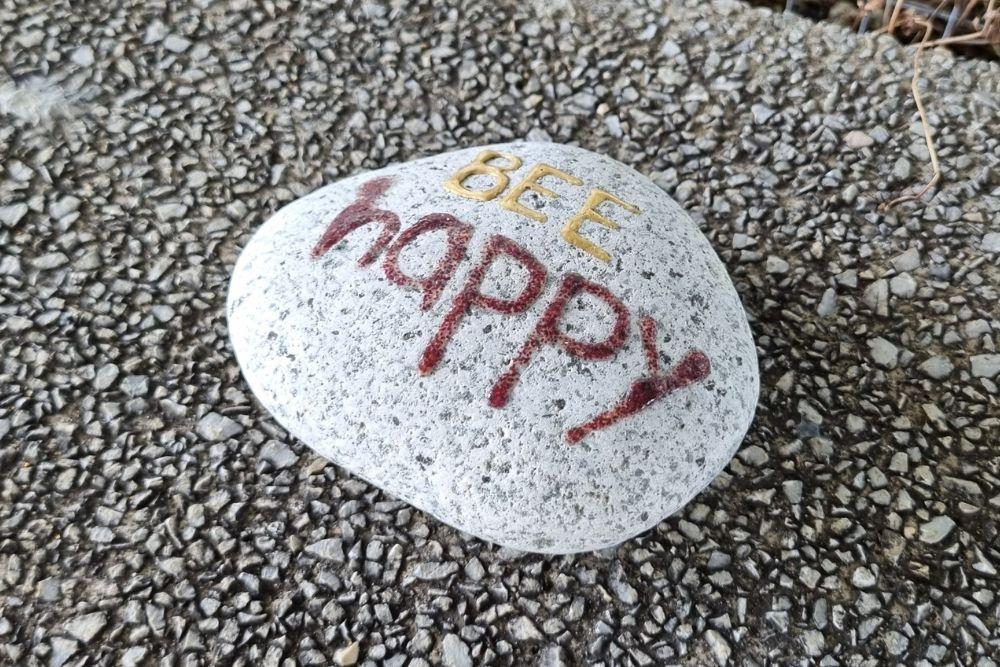
The growing push towards sustainability and conservation has led to burgeoning interest in Bee Amazed Garden’s programmes. He’s seen an increase in call for bee rescues, and acceptance for having backyard apiaries. In fact, he actively manages hives at a condominium complex and another at Sentosa Golf Club.
On the education front, his garden received more than 3,500 visitors last year for programmes ranging from introductory classes for urban beekeeping – yes, it isn’t illegal to set up your own apiary in your back garden in Singapore – to organisational excellence workshops, banking on the characteristics of bees from which John says we have “much to learn”.
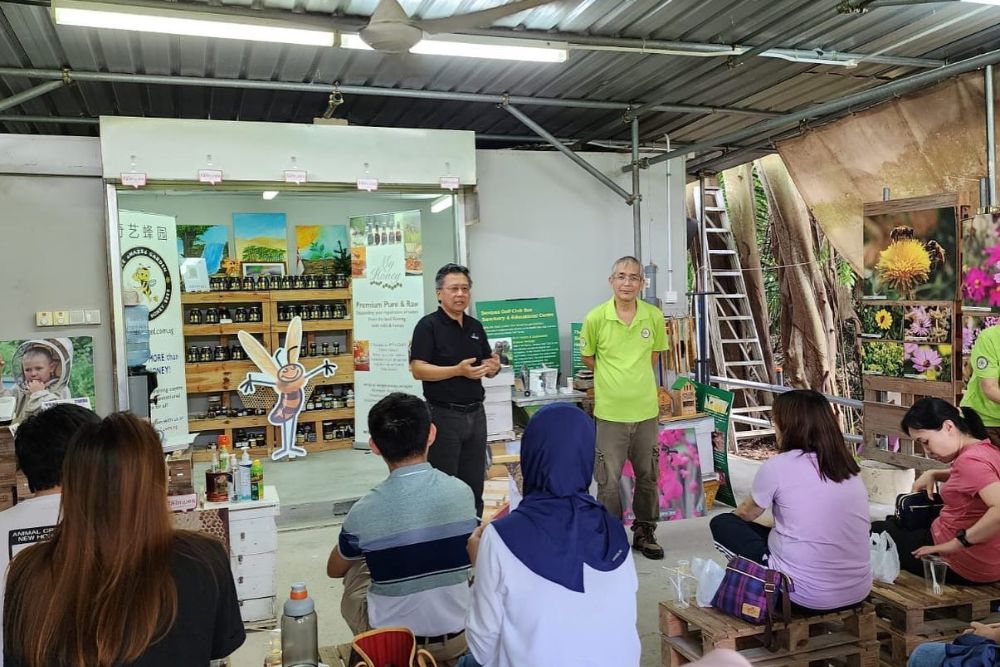
Bees work until they die. There is no retirement age for the bees. As long as I have the energy to keep working with people – to see them go 'Wow!' when I take out my bees, and later on, becoming no longer afraid of the bees – I'll keep working. It gives me a lot of satisfaction.
That includes his attitude towards retirement:




